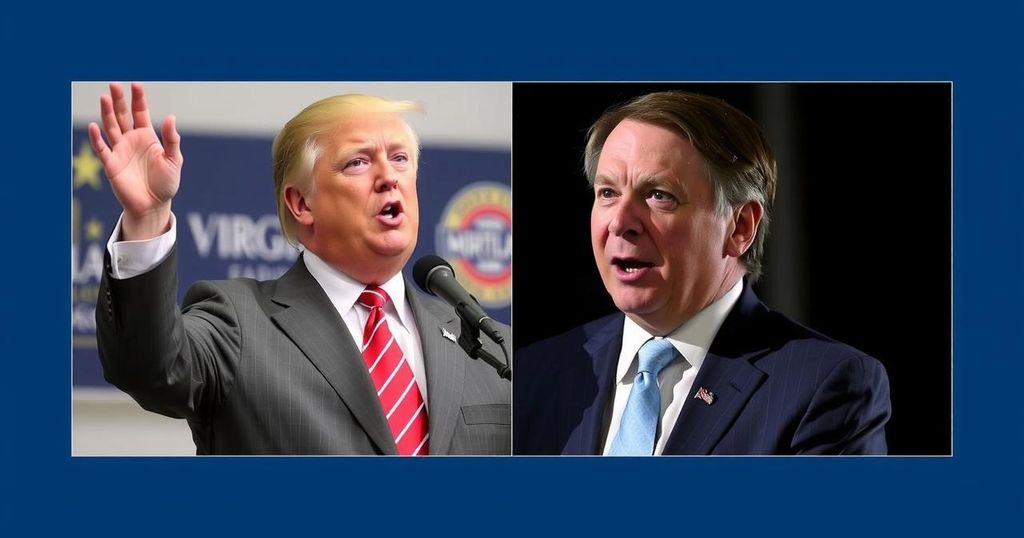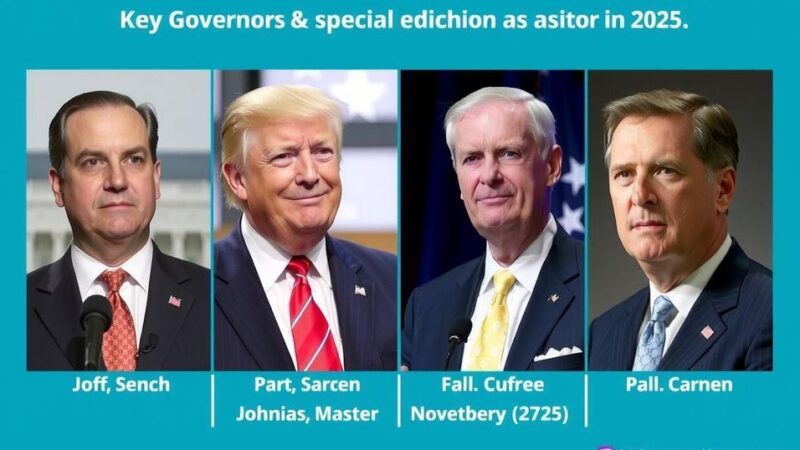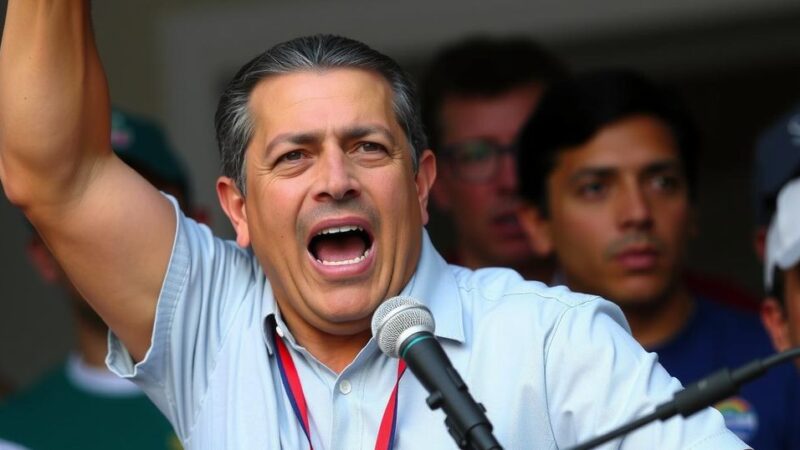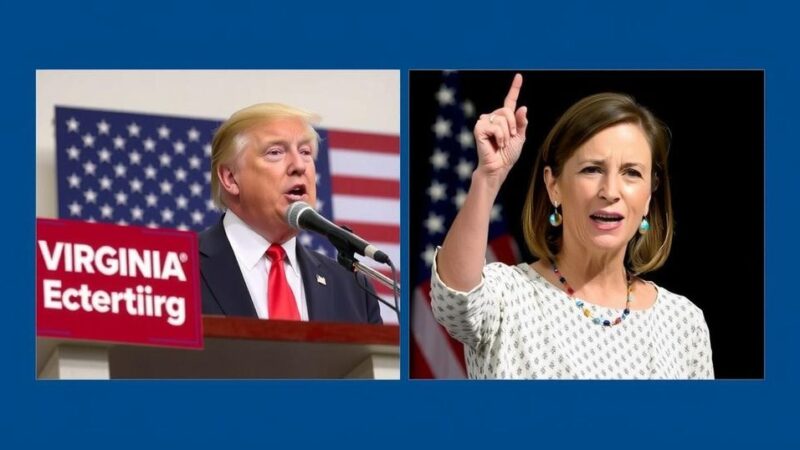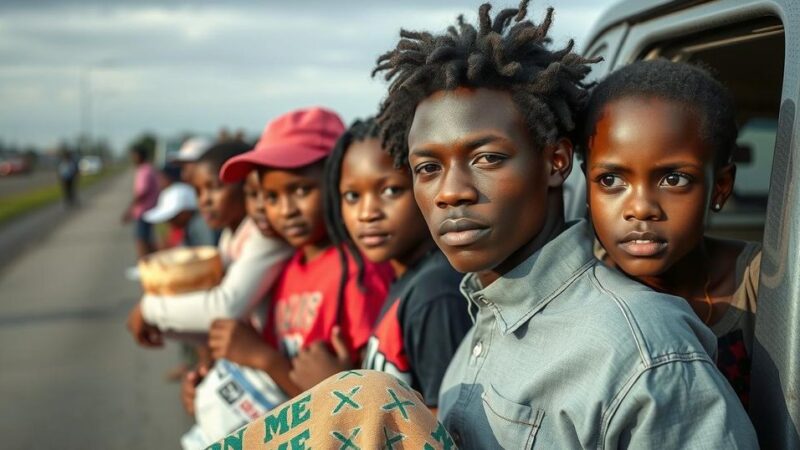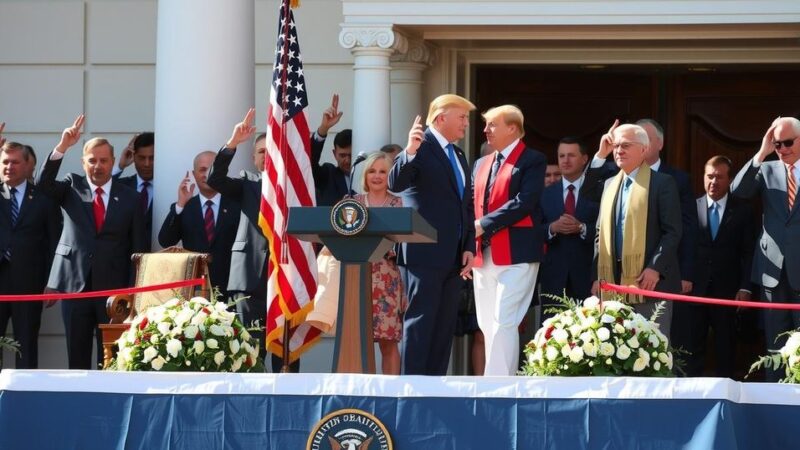Virginia’s special elections are a critical test of party strength ahead of the 2025 gubernatorial race, potentially reinforcing Democratic control or signaling GOP momentum. Key races include Kannan Srinivasan versus Tumay Harding and J.J. Singh against Ram Venkatachalam, with abortion rights emerging as a pivotal issue. The discussions around a $2 billion budget surplus also highlight differing priorities within the parties.
Virginia’s recent special elections serve as an important gauge of party strength ahead of the competitive 2025 gubernatorial race. The elections, occurring post the general elections on November 5, may reinforce Democratic control in the state legislature or indicate a growing momentum for Republicans. Notable races include Democrat Kannan Srinivasan against Republican Tumay Harding in the 32nd Senate District, and Democrat J.J. Singh contesting Republican Ram Venkatachalam in the 26th House District, both of which have gained national attention.
Spotlighting the Republican-leaning 10th Senate District, Democrat Jack Trammell is battling GOP nominee Luther Cifers to succeed former State Senator John McGuire, who moved to Congress. With Trump having substantial support in this district, Cifers is perceived as the favorite. Moreover, discussions surrounding a significant $2 billion budget surplus are underway, with Democrats favoring educational investments, while tax relief for workers is a mutual point of interest for both parties.
Abortion rights are emerging as a pivotal topic in these elections, with Democratic candidates Srinivasan and Singh defending reproductive access, while Republican candidates have varied stances. Trammell endorses measures to protect abortion rights, contrasting with Cifers, who adopts an uncompromising anti-abortion position.
The Democratic party’s control over Virginia’s legislature is critical for advancing their agenda, particularly concerning constitutional amendments related to abortion rights. The issue remains contentious and divided along party lines, particularly following the U.S. Supreme Court’s decision to overturn federal protections in 2022. The implications of this issue are heightened as states navigate their reproductive rights amidst shifting federal policies under the incoming Trump administration.
The Virginia special elections held recently are significant as they mark the first political test of public sentiment since the general elections in November. The results of these elections are viewed as a precursor to the 2025 gubernatorial race, which is expected to be closely contested. With a substantial budget surplus, lawmakers are also deliberating on funding allocations, notably in education, amidst broader discussions on tax relief. Abortion remains a salient issue that has raised stakes in this election cycle, reflecting broader national trends following the Supreme Court’s recent ruling on federal protections.
In summary, the special elections in Virginia are a crucial early indicator of party dynamics heading into the 2025 gubernatorial race. With significant races displaying contrasting positions on pressing issues such as abortion rights and budget allocation, the outcomes could dramatically influence future legislative agendas. The Democrats aim to solidify their control to further their initiatives, particularly around reproductive rights, while Republicans seek to capitalize on their strengths in traditionally leaning districts. The results could set the stage for evolving political landscapes in Virginia.
Original Source: virginiamercury.com

